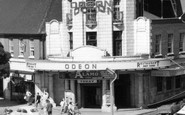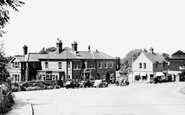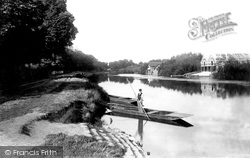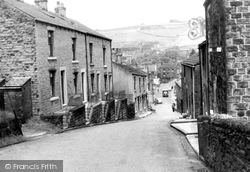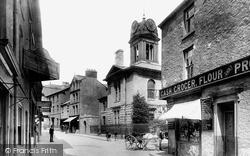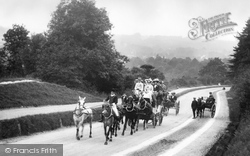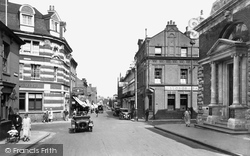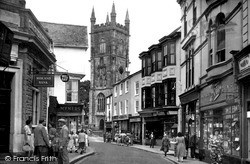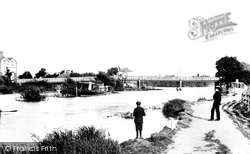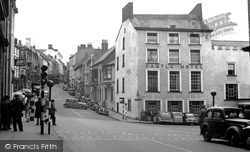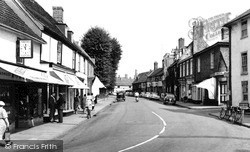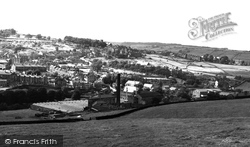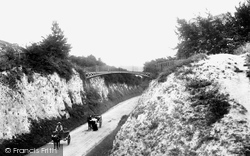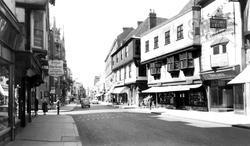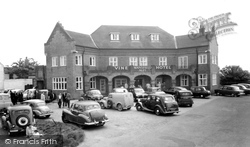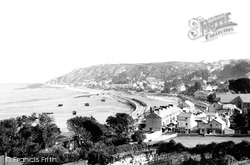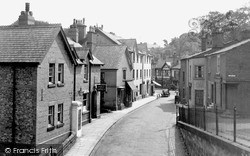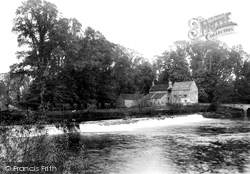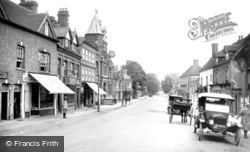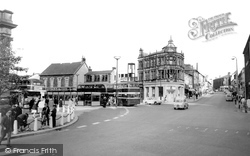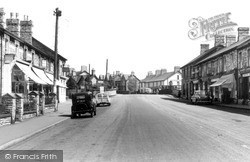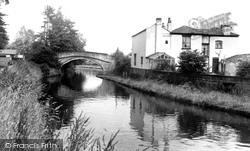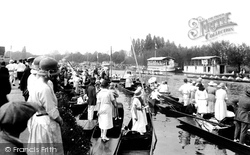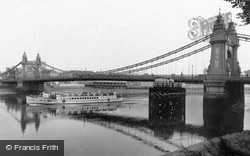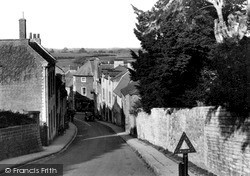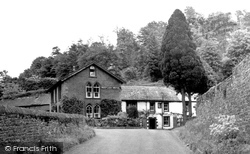Places
3 places found.
Those places high-lighted have photos. All locations may have maps, books and memories.
Photos
63 photos found. Showing results 821 to 63.
Maps
12 maps found.
Books
1 books found. Showing results 985 to 1.
Memories
7,564 memories found. Showing results 411 to 420.
Pontypool Town Centre
I lived in Upper Bridge Street and remember a few of the shops in town, I think! On the corner of Upper Bridge Street and the Bell Pitch was Franketti's fish shop with an awesome Art Nouveau till and free chips if you took ...Read more
A memory of Pontypool in 1960 by
Cofton Farm Camp Site
'Eee, when I were a lad'....... in the 1950's my dad and I would get the bus from Exeter to Dawlish and camp for a week at Cofton Farm, using a little WWII army-surplus 2-man ridge tent. My elder brother was in The Scouts, ...Read more
A memory of Starcross by
Living In Melrose Ave, Willesden Green In 1950s
Hi, my name is Liz Ely (maiden name O'Connell) and I was born in Melrose Ave, Willesden Green in 1953 and I still live in the same house. I remember doing my mother's shopping in Sainsburys in ...Read more
A memory of Willesden in 1953 by
The Day We Set Earith On Fire
Well . . . not all of it! My dad was enlisted USAF stationed at Alconbury 1959-1960 and he found us a place on High Street that we shared with a number of other people. I believe it was one of the first three ...Read more
A memory of Earith in 1960 by
Childhood Memories Buckland Wharf
My Aunt Maud and her husband Alf lived in the last council house on the road to Buckland Village. Their son, Gordon Worrell, lived with his wife Winnie in the little row of cottages facing out on ...Read more
A memory of Buckland by
My Early Years In Brynteg
I was born at 1 Cilcain Grove, Brynteg in 1935 to Peter Price Davies and Kitty Davies with my brother David and sister Joan. I went to the junior and secondary schools before going on to the Wrexham Technical ...Read more
A memory of Brynteg in 1940 by
A Lovely Place To Grow Up!
I was born in Arnold Avenue, just five minutes walk from the George pub, which was handy later on in my life. Also the post office opposite the pub, which was owned by Mr & Mrs Fit-Simons, who used to have rows of ...Read more
A memory of Meopham in 1956 by
Top Rank
I can remember very vividly going to Top Rank on a Saturday morning with my friends. We all went to Francis Coombe Secondary School. We all had so much fun dancing on these Saturday mornings... loved it...The memories of this and all ...Read more
A memory of Watford in 1968 by
My Childhood Of Old Bracknell Farm
Hi Peter, I remember the Thompkins was it the baker or was that the Cheneys? Joe Smith was the newsagent who used to treat the kids to a summer outing by train every summer. We used to get a new florin and a ...Read more
A memory of Bracknell in 1949 by
Roxy Picture House
I too, have fond and happy memories of the Roxy. I was born just down the road in Garnet Street in 1938 and went to Barkerend School leaving in 1953. I remember on a Saturday morning going with a few mates, we would take it in ...Read more
A memory of Bradford in 1948 by
Captions
2,471 captions found. Showing results 985 to 1,008.
On the Wraysbury bank, near to where we see the boathouse of W Hanes and Sons, there once was a wharf where iron ore was landed for refining at a local mill before being taken to London.
Delph and Dobcross were two of the principal villages within Saddleworth.
A pony and trap stands outside the grocer's, where 'finest quality flour' was 1s 3d, 'marvellous flour' was 1s 2d and 'splendid flour' was 1s 0d.
A party, dressed in their finery, with the ladies in large flowery hats, are on an outing on a coach owned by the millionaire Alfred Gwynne Vanderbilt.
On the right is the imposing facade of the old National Provincial Bank.
The Midland Bank occupies a small but distinctive stone building next door to Mill Bay laundry, and Myners the butcher's uses the ground floor of Tremayne House (left).
The Thames flows past Reading. The town centre is closer to the River Kennet, on its way to merge with the main river.
The Lloyds Bank on the left is still in place today but the Boots beyond it has been relocated to the new shopping development on the riverside.
The two shops on the left were both Morley's, one a clockmaker's, the other an ironmonger's. The tree is at the east end of the churchyard.
This view of the village on the hill from Hebden Road is dominated by the two big mills, the Ivy Bank Mills on the left and Bridgehouse Mill in the foreground.
Just out of the picture, high on the right bank, is the path from Love Lane and Wolversdene Road to the bridge. The trap and donkey cart going into town have stopped to pose for the picture.
Above the modern shopfronts and advertising signs, the picturesque assortment of buildings bear testimony to the city's rich history.
The Vine Hotel was certainly the largest building in the village; it was built before the Second World War. The writer seems to recall it being more of a very popular pub than a busy hotel.
Clement's Quarry is in the foreground. Note the area of tidal reach between the railtracks. The Mumbles-Swansea train in the centre of the photograph is heading for or leaving the Elms Terminus.
Taken from the canal bridge, this photograph shows Bridgewater Street, looking towards Eagle Brow.
This view looks from the north bank of the Avon, near the toll bridge. The mill buildings are still in use (compare this view with the last one).
North Street leads out of the town in the direction of Cowdray Park, with which the town is most closely associated.
We are looking across the Market Place. The Market Hall is just visible on the left, and the area beside it still serves as the town's main bus terminal.
As well as the Midland Bank on the left and the Windsor Arms on the right, this picture also features a branch of Thomas & Evans on the right-hand side of the picture.
The Bridgewater canal, built between 1759-1776, was a key transport network of the early Industrial Revolution, linking Manchester to Runcorn and carrying freight and passengers.
The Thames, or Isis, plays an important role in Oxford University life.
We meet Bazalgette later at the Embankment in central London; seen here from the Barnes bank towpath, his suspension bridge has a 420-foot main span, and the towers are finished with French-style pavilion
Many of the town's elegant buildings were built during the 18th century, when the town prospered from the East Indies trade.
The Red Lion Hotel in the charming village of Armathwaite occupies a beautiful position at the foot of a tree-clad bank above the River Eden.
Places (3)
Photos (63)
Memories (7564)
Books (1)
Maps (12)

